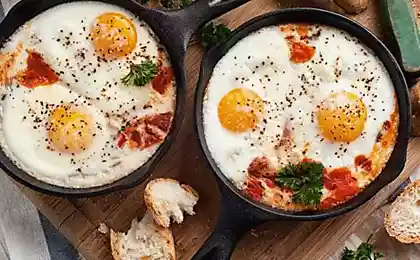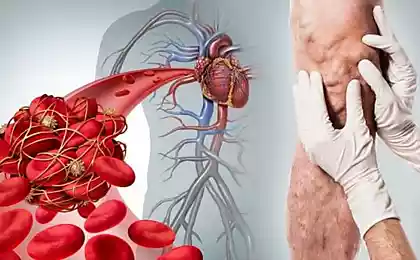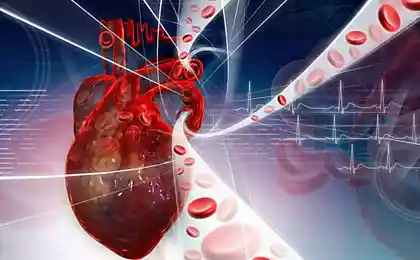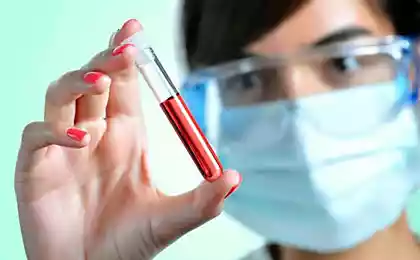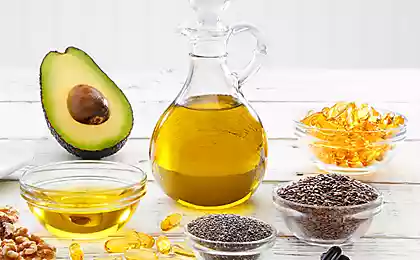250
Terrible opponents of fats: products that will not allow the formation of a blood clot
Probably everyone has heard about blood clots and thrombosis, but not everyone realizes how dangerous they can be. It is the clot that is responsible for the development of such deadly diseases as myocardial infarction and ischemic stroke.

DepositPhotos
Once cardiologists blamed cholesterol for all the troubles. It was believed that heart attacks are caused by heart rhythm disturbances that occur due to the narrowing of the arteries as a result of the accumulation of cholesterol plaques.
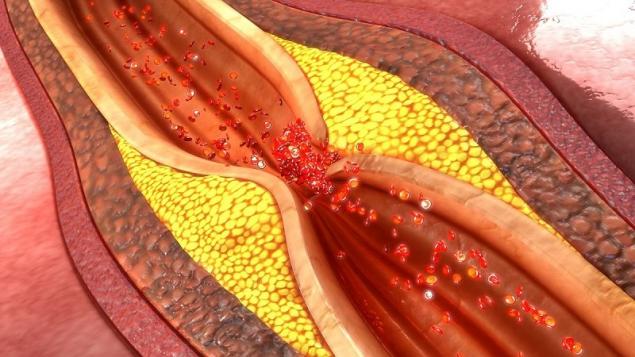
DepositPhotos
But recent scientific evidence suggests that cholesterol does not kill a person. It can be killed by a clot that forms on a cholesterol plaque in the arteries.
Blood clot formation is probably the only serious factor determining whether you will have a heart attack, stroke or blood vessel damage. The degree of danger is determined by thrombotic factors: viscosityIts fluidity and stickiness, tendency to the formation of blood clots and their increase.
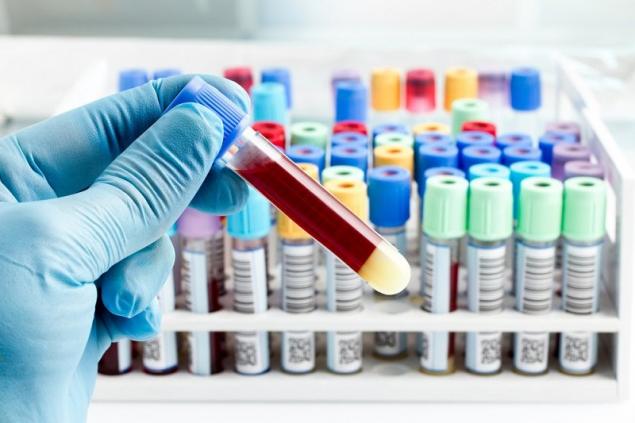
DepositPhotos
All these factors are largely determined by nutrition. One of them is how much platelets (the smallest blood cells) tend to accumulate, forming clots and sticking to the walls of blood vessels.
Another factor is blood fibrinogen, a protein that is the raw material for blood clots. The high content of fibrinogen in the bloodstream is the most important sign of heart disease and strokes.
An important role is played by the fibrinolytic system, which destroys and dissolves unnecessary and dangerous blood clots. How active this system is, as well as fibrinogen levels, are important determinants of heart disease, according to Harvard cardiologist Dr. Victor Gurevich.
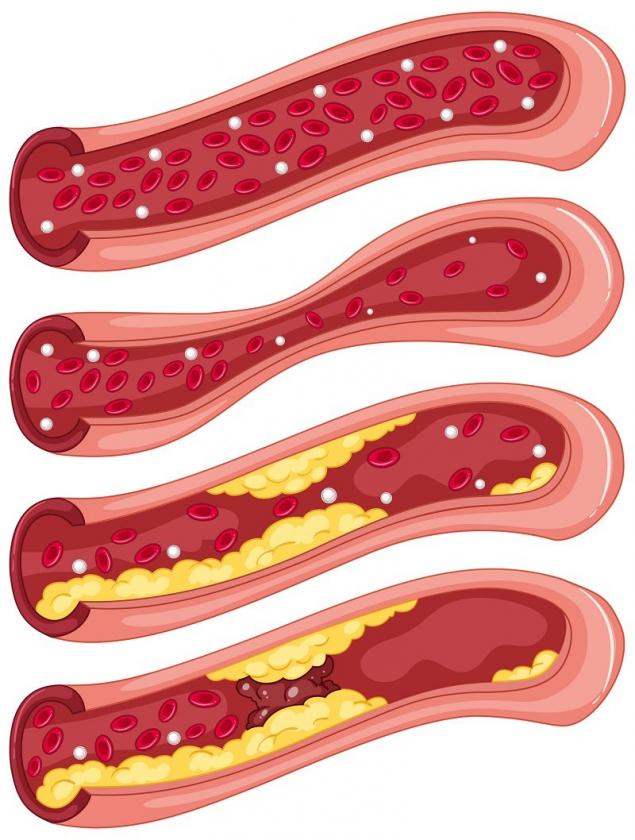
DepositPhotos
Experiments confirm that the main effect of nutrition on the development of heart disease is primarily due to thrombotic factors, not cholesterol in the blood. And the benefits of eating foods that affect these factors are quite significant.
However, many foods affect both (e.g., onions and garlic), so you will get a double benefit from eating them.
Doctors always warn patients not to take aspirin before surgery. They are afraid of “blood thinning”, deterioration of its clotting. The blood must clot quickly to close the wound made by the scalpel.
But did your surgeon ever tell you not to eat Chinese food before surgery? Or avoid large doses of ginger, garlic, black mushrooms and oily fish like salmon and sardines?
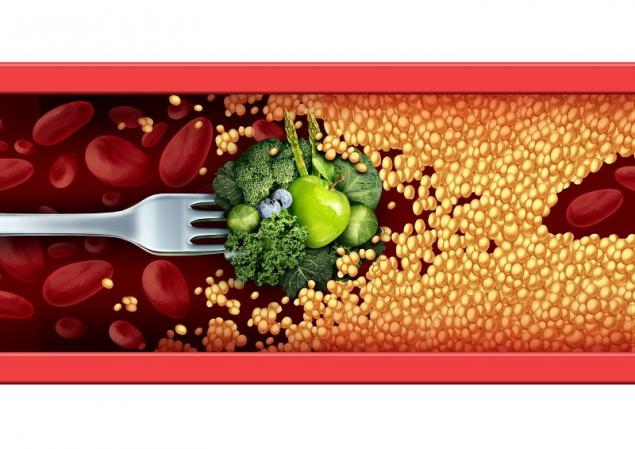
DepositPhotos
The fact is that all these products are also anticoagulants that can dramatically reduce blood clotting, they have the same biological mechanism as aspirin.
Such products block the action of a substance called thromboxane, which increases the ability of platelet blood cells to combine into one whole, forming a clot and covering the damaged vessel wall.
Fatty foods such as cheese and steak make blood thicker because they make platelets more sticky and easier to assemble into clots.
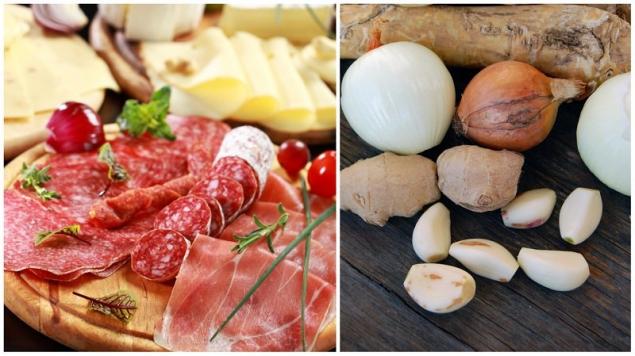
In addition, some products increase or decrease the level of fibrinogen, which plays an important role in the formation of blood clots, and also accelerate or slow down the processes of dissolution of blood clots.
There are also products that affect the viscosity and fluidity of the blood, contributing to or preventing the appearance of blood clots that cause blockage of blood vessels in the heart, brain, legs and lungs.
Undoubtedly, regular consumption of products from our list can have a powerful pharmacological effect on the body. blood-formation and thus save from a cardiovascular disaster.
Products that prevent the formation of clots
It should be remembered that it is important to reduce the consumption of foods rich in vitamin K, as they, on the contrary, contribute to blood clotting. Among them are the first berries of black ash.
There is vitamin K in spinach, lettuce and other food greens. If you have thick blood, be aware that foods rich in vitamin K make it even thicker.
Eating blood clots is probably the most important dietary measure to take to prevent heart disease and strokes, even more important than controlling cholesterol.
Nutrition for the prevention of heart disease
"Site" He knows exactly what causes women over 40 to feel bad. We will tell you about 14 alarming symptoms that indicate a deficiency of vitamin B12 in the fragile female body.
And also very conveniently will have a summer vitamin snack with sour cream. Our editorial staff offers you a recipe for baked zucchini that will surprise even the most strict gourmets.

DepositPhotos
Once cardiologists blamed cholesterol for all the troubles. It was believed that heart attacks are caused by heart rhythm disturbances that occur due to the narrowing of the arteries as a result of the accumulation of cholesterol plaques.

DepositPhotos
But recent scientific evidence suggests that cholesterol does not kill a person. It can be killed by a clot that forms on a cholesterol plaque in the arteries.
Blood clot formation is probably the only serious factor determining whether you will have a heart attack, stroke or blood vessel damage. The degree of danger is determined by thrombotic factors: viscosityIts fluidity and stickiness, tendency to the formation of blood clots and their increase.

DepositPhotos
All these factors are largely determined by nutrition. One of them is how much platelets (the smallest blood cells) tend to accumulate, forming clots and sticking to the walls of blood vessels.
Another factor is blood fibrinogen, a protein that is the raw material for blood clots. The high content of fibrinogen in the bloodstream is the most important sign of heart disease and strokes.
An important role is played by the fibrinolytic system, which destroys and dissolves unnecessary and dangerous blood clots. How active this system is, as well as fibrinogen levels, are important determinants of heart disease, according to Harvard cardiologist Dr. Victor Gurevich.

DepositPhotos
Experiments confirm that the main effect of nutrition on the development of heart disease is primarily due to thrombotic factors, not cholesterol in the blood. And the benefits of eating foods that affect these factors are quite significant.
However, many foods affect both (e.g., onions and garlic), so you will get a double benefit from eating them.
Doctors always warn patients not to take aspirin before surgery. They are afraid of “blood thinning”, deterioration of its clotting. The blood must clot quickly to close the wound made by the scalpel.
But did your surgeon ever tell you not to eat Chinese food before surgery? Or avoid large doses of ginger, garlic, black mushrooms and oily fish like salmon and sardines?

DepositPhotos
The fact is that all these products are also anticoagulants that can dramatically reduce blood clotting, they have the same biological mechanism as aspirin.
Such products block the action of a substance called thromboxane, which increases the ability of platelet blood cells to combine into one whole, forming a clot and covering the damaged vessel wall.
Fatty foods such as cheese and steak make blood thicker because they make platelets more sticky and easier to assemble into clots.

In addition, some products increase or decrease the level of fibrinogen, which plays an important role in the formation of blood clots, and also accelerate or slow down the processes of dissolution of blood clots.
There are also products that affect the viscosity and fluidity of the blood, contributing to or preventing the appearance of blood clots that cause blockage of blood vessels in the heart, brain, legs and lungs.
Undoubtedly, regular consumption of products from our list can have a powerful pharmacological effect on the body. blood-formation and thus save from a cardiovascular disaster.
Products that prevent the formation of clots
- Garlic
Eric Block, professor of chemistry at the University of New York at Albany, isolated achoenes from garlic that have the same anticoagulant effect as aspirin, or even superior to it.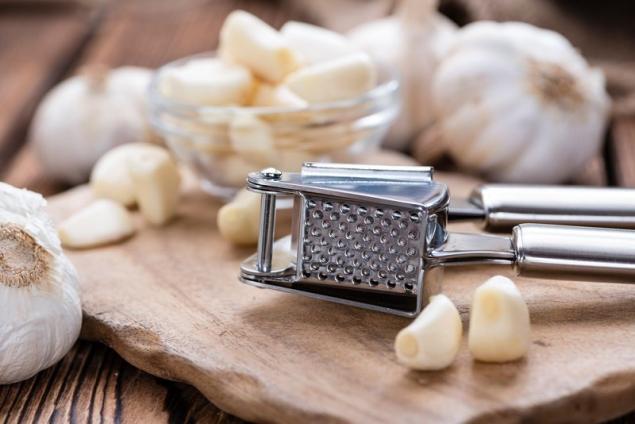
DepositPhotos
Ahoen gets its name from the Spanish ajo - "garlic", this sulfur-containing substance is formed a few minutes after fresh garlic is crumbled or crushed.
Ahoen is involved in lowering cholesterol and preventing blood clots. Here are a few tricks that will help get the largest amount of achoen from garlic.
Don't grind the garlic, press it. This releases enzymes and allicin, which is converted to achoene. Fry the garlic a little. High temperature treatment also helps. Cook garlic with tomatoes or add it to other sour foods. Even a small amount of acid contributes to the release of achoen.
In addition, a lot of achoen stands out when mixing crushed garlic with feta cheese and olive oil (this is a well-known Greek remedy for heart disease). - Onions
Onions have a truly amazing ability to resist the thrombo-forming effect of fatty foods. Researchers from the Medical College in Lucknow (India) conducted such an experiment: first, the subjects were given a very fatty lunch with butter and cream and determined that the body’s ability to dissolve blood clots in them decreased dramatically.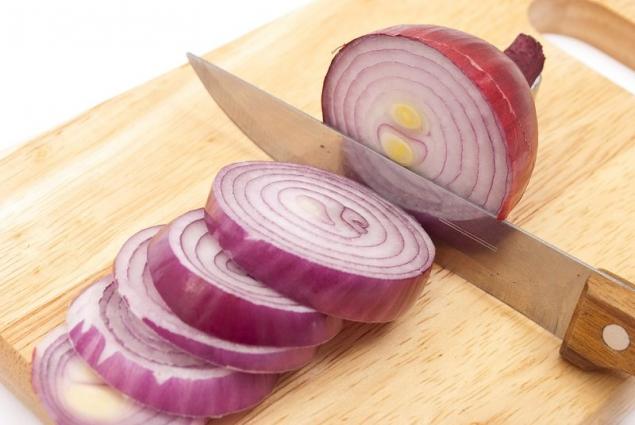
DepositPhotos
They were then given the same lunch, this time supplementing it with 60g of onions - raw, boiled or fried. Blood tests after two and four hours showed that the onions completely blocked the harmful effects of fatty foods. For this, less than half a cup of onions was enough.
What in the onion prevents the formation of blood clots? Possibly a powerful antioxidant, quercetin. It helps block the formation of blood clots and stop the processes leading to clogging of the arteries.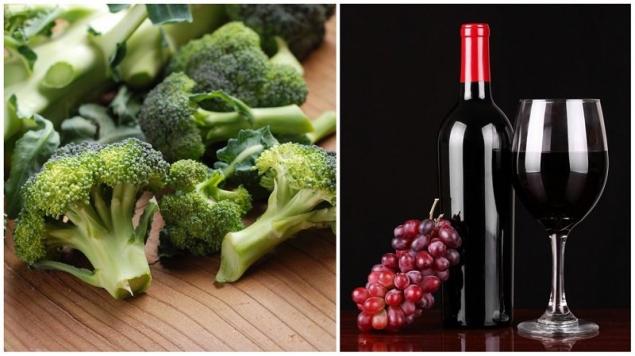
DepositPhotos
Most quercetin is found in red and yellow onions. There's less in white. Lots of quercetin in red wine, broccoli and tea.
Conclusion: eating fatty foods, do not forget about onions. A piece of onion in a hamburger, omelet or pizza can neutralize the thrombo-forming properties of these fatty dishes. - Fish
Since 80% of strokes are caused by blood clots, fatty fish can help prevent them because it acts as a weak anticoagulant that slows the formation of blood clots.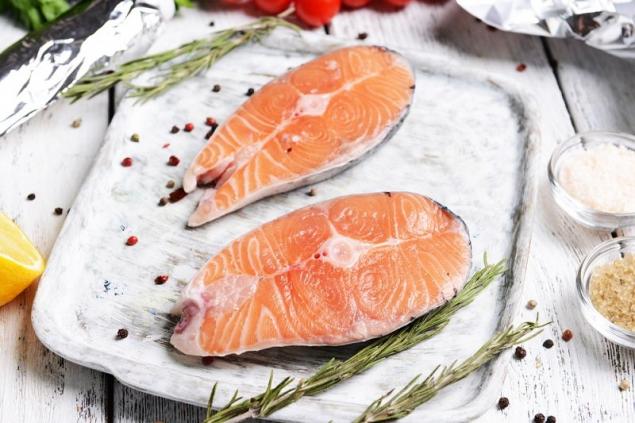
DepositPhotos Paul Nestel, head of the Human Nutrition Research Centre in Australia, and colleagues found that eating about 150 grams of salmon or sardines a day reduced levels of the dangerous fibrinogen by an average of 16% and increased bleeding time by 11%.
Similar results were obtained by Harvard researchers. They suggested that consuming 195 grams of canned tuna could thin the blood no less effectively than aspirin.
When you eat fatty fish, your platelets release much less thromboxane, which tells them to come together. So says a researcher from the agricultural department, PhD Norberta Schene.
The antithrombotic effect can be achieved by eating about 105 g of oily fish (mackerel, herring, salmon and sardines) or about 180 g of canned tuna. - Red wine
Dr. John Folts of the University of Wisconsin and Madison School of Medicine found that drinking two and a half glasses of red wine reduced platelet stickiness, which means their ability to form life-threatening blood clots by 40% within forty-five minutes.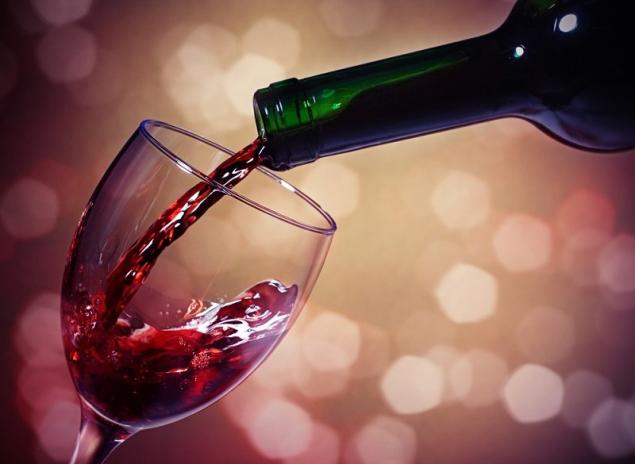
DepositPhotos
Red grape juice helps, but it takes three times as much to achieve the same effect. What explains the property of red wine and grape juice to counteract the formation of blood clots? Scientists from Cornell University suggested that the main active substance of wine in this case is resveratrol, contained in the skin of grapes.
Every time a fungal infection hits a grape, the berries protect themselves by releasing the natural pesticide resveratrol, similar to how the human body produces antibodies to fight infections.
If you drink red grape juice or red wine, you inject some resveratrol into your body, says Leroy Creasy, Ph.D., a professor at Cornell University College of Agriculture.
Dr. Creasy found a high concentration in red wine, but not in white wine. Here is how he explains it: in the production of red wine, the pressed grapes are fermented along with the skin, and in the production of white wine, the grapes are pressed, and the skin rich in resveratrol is thrown away.
Conclusion: Regular intake of red wine in moderation with food, apparently contributes to antithrombotic processes and prevents heart disease. This means that women should drink a glass and men should drink two glasses of wine a day. - Tea
Tea really protects arteries from blood clots. Scientists from the Japanese Central Research Institute in Ito noted that one type of tannin called catechin, contained in green tea, inhibits the accumulation of platelets no less actively than aspirin.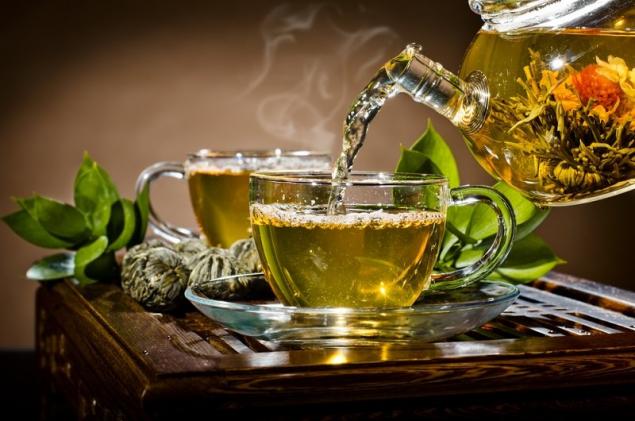
In addition, tea slows the stimulation of LDL cholesterol reproduction of smooth muscle tissue cells on the walls of the arteries. This reproduction contributes to the appearance of arterial plaques. - Vegetables
Those who eat a lot of fruits and vegetables are better at dealing with blood clots, according to one Swedish study of 260 middle-aged patients. Other studies show that vitamin C and fiber, concentrated in vegetables and fruits, stimulate the process of dissolving blood clots and help slow the accumulation of platelets.
In addition, the lowest levels of fibrinogen, which causes blood clots, are observed in vegetarians, especially strict ones, who do not eat any animal products, including eggs and milk.
Probably the reason is that fruits and vegetables contain substances that lower fibrinogen levels, and animal fats and cholesterol increase it.
In addition, vegetarians have less viscous blood than meat eaters. Lower viscosity is associated with lower blood pressure. So here's another piece of evidence that fruits and vegetables prevent heart disease. - Burning pepper
Burning red pepper is an excellent remedy for blood clots. Evidence for this came from Thailand, where people regularly eat red pepper as a seasoning and appetizer, and saturate the blood with substances from it several times a day.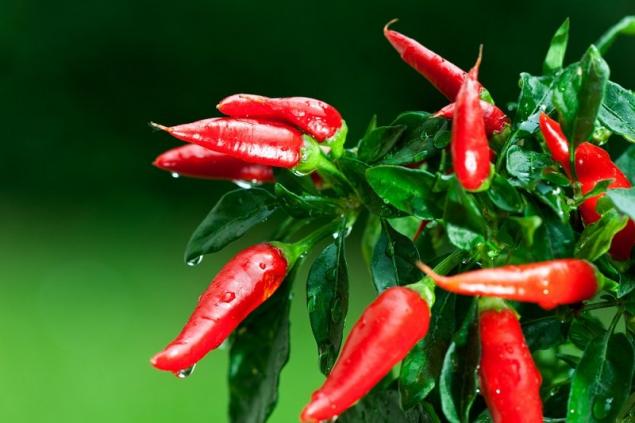
Chili pepper contains vitamins A and E, potassium and folic acid, which perfectly thin the blood. Hematologist Sukon Visudhifan from Bangkok believes that red pepper clears blood clots and therefore Thais are much less likely to suffer from clogged arteries. - Other spices
To protect yourself from harmful blood clots will help you and other spices. Krishna Srivastava of the University of Oden in Denmark studied eleven types of spices and found that seven of them inhibit platelet accumulation.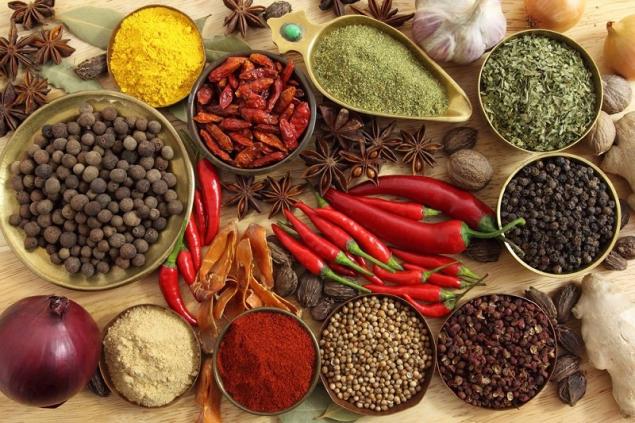
The most powerful were cloves, ginger, cumin and tumeric. “Clove is more effective than aspirin in this regard,” says Dr. Srivastava. The main active substance in clove is, apparently, eugenol, which reduces the production of thromboxane.
Substances in the composition of ginger, according to Dr. Srivastava, more effectively slow down the synthesis of prostaglandin than the powerful drug indomethacin. If you are taking anticoagulants, then, before adding a large amount of ginger to the diet, thinning the blood, consult a doctor. - Chinese black mushrooms
To protect yourself from the formation of blood clots, fill the blood with a medicine from Asian black mushrooms called “moer”, or “wood ear” (auricular mushrooms).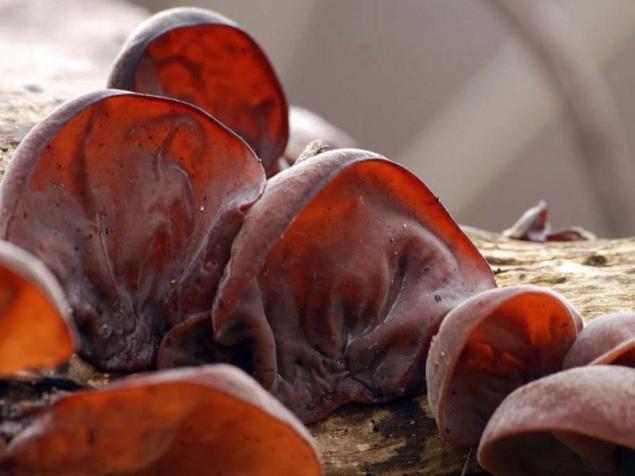
These mushrooms are well known in Chinese medicine for their positive effects on the blood. It turns out that black mushrooms (but not any, namely Chinese) contain a number of blood-thinning components, including adenosine, also present in garlic and onions.
The presence of such a large number of blood-thinning foods in the diet of the Chinese - garlic, onions, black mushrooms and ginger - may explain why representatives of this people are so rare coronary artery diseases. - Olive oil
In addition to all the other benefits, olive oil even reduces platelet stickiness, which may explain its benefits for the arteries. For example, British researchers from the medical school of London asked volunteers to take three-quarters of a tablespoon of olive oil twice a day for eight weeks as a supplement to a regular diet.
The ability of platelets to accumulate in the subjects decreased dramatically. The researchers concluded that olive oil is beneficial for platelet health, adding that this explains why Mediterranean people who consume a lot of olive oil suffer less from heart disease.
It should be remembered that it is important to reduce the consumption of foods rich in vitamin K, as they, on the contrary, contribute to blood clotting. Among them are the first berries of black ash.
There is vitamin K in spinach, lettuce and other food greens. If you have thick blood, be aware that foods rich in vitamin K make it even thicker.
Eating blood clots is probably the most important dietary measure to take to prevent heart disease and strokes, even more important than controlling cholesterol.
Nutrition for the prevention of heart disease
- Eat fatty fish, garlic, onions and ginger, and drink red wine (in moderation). All this thins the blood and does not allow blood clots to form.
- Limit the intake of fats, especially saturated animals and plant-based polyunsaturated omega-6 types.
- Try to eat simultaneously with food that promotes the formation of blood clots, products that prevent their appearance. Such successful combinations include eggs with onions or smoked salmon, red wine with cheese, Mexican dish "chili con carne" (meat in a hot sauce with red pepper and beans).
- If you take anticoagulants, suffer from bleeding or your family has had a brain hemorrhage, you need to eat blood thinners in moderation. For reasons of concern, ask your doctor to check if your blood is clotting normally.
"Site" He knows exactly what causes women over 40 to feel bad. We will tell you about 14 alarming symptoms that indicate a deficiency of vitamin B12 in the fragile female body.
And also very conveniently will have a summer vitamin snack with sour cream. Our editorial staff offers you a recipe for baked zucchini that will surprise even the most strict gourmets.
The magic of horseradish leaves: pull salt directly through the pores of the skin
Binary Broker – safe, profitable, with the ability to learn binary options trading













